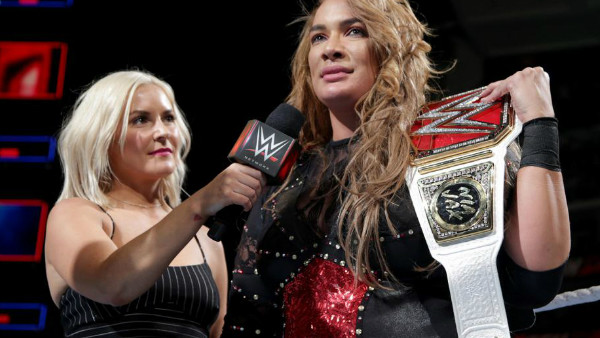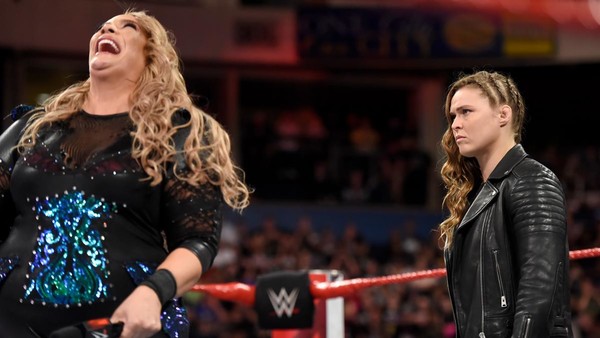If WWE Were Being Honest About Nia Jax

Her Backlash 2018 post-match promo, nearly two years after her premature promotion, dripped with insincerity and acted unapologetically as a reminder of why the company had been so forceful with her 'development' during the time.
Having definitively defeated Alexa Bliss at the end of an actually-very-good bullying angle between the two, Nia took the microphone to remind younger fans in particular that her challenger's behaviour was wrong. It perhaps reflected WWE's lack of faith in their own storytelling in 2018 that they felt the promo was even necessary - the contest (and the WrestleMania title switch that facilitated the rematch) had actually satisfied the narrative. Bliss, the cruel vindictive ex-champion, had watched her house of cards collapse when the victim took decisive action. It was a polar opposite of how the company had previously dealt with such issues, and another refreshing implication that the organisation are at long last attuned to real issues rather than the toxic everyday sexism and rampant misogyny of prior eras.
Was it bad scripting, bad performance or a bad bit of both that sent all this good sentiment careering off a cliff?
The Champion's promo was possibly one of the worst of the year. To boos that only grew louder with every emptier platitude, Jax' genuine determination disappeared under a fog of catchphrases and clichés. "It's okay to be different. Who wants to be ordinary? Be extraordinary" dissolved into "Be who you are, be a star", before collapsing under an absurd closing gambit - "remember, in the end, bullies always get their a*ses kicked".
Fans hated it. Just because WWE stands for nothing, it doesn't always mean the 'Universe' will fall for everything. More than just another window into the violence-to-solve-violence mindset that permeates much of Vince McMahon's ultra-competitive DNA, it contradicted the anti-bullying campaign she'd literally name-checked during her dialogue. The campaign that was immediately promoted by Michael Cole as she departed, parroting lines as if he was rattling through the terms and conditions section of a shady payday loans commercial. Those adverts designed to fool and deceive with a disclaimer only inserted for legal reasons. Part-public service announcement, part-slogan factory, Jax was at long-last the billboard for the company's bullsh*t she'd tragically been earmarked for long before anybody knew how talented (or... not) she could be as an elite-level performer.

She's been turned heel again - as a f*cking bully, of all things - to build to the aforementioned Rousey match, but her aforementioned inabilities are largely what's made the feud such an aforementioned sh*tshow. It's this sinkhole wrestling fans will still have to fight out of whilst WWE manipulate the politics of pushing somebody like Nia to extend and enhance their eye-watering television deals. There's perhaps no better example currently on television of how the company's relationship with its viewing audience matters so much less than the one it maintains with the rest of the business world. Jax - like Alexa Bliss the bullying heel and even Ronda Rousey the awkward babyface - is just another (relatively) willing participant in a promotion never less reliant than ever on creative nerve, logical nuance or physical nous.
If WWE were being honest about Nia Jax, they'd probably get taken to a tribunal, in truth. Her size hasn't yet helped her unlock an emotional intensity that fits being a wrestling monster, no more than her nepotistic links haven't gifted her the charisma of her 'electrifying' cousin. Yet these are attributes the company will continuously tacitly parade to forcibly remind sponsors, affiliates, stockholders and anybody else that bothers to look that the company is a responsible brand in 2018. Nia - a woman who fires shots about individuality either side of the kayfabe divide - is instead a trapped advocate of the empiric organisation monopolising 'diversity' for corporate gain until the world moves on to something new.